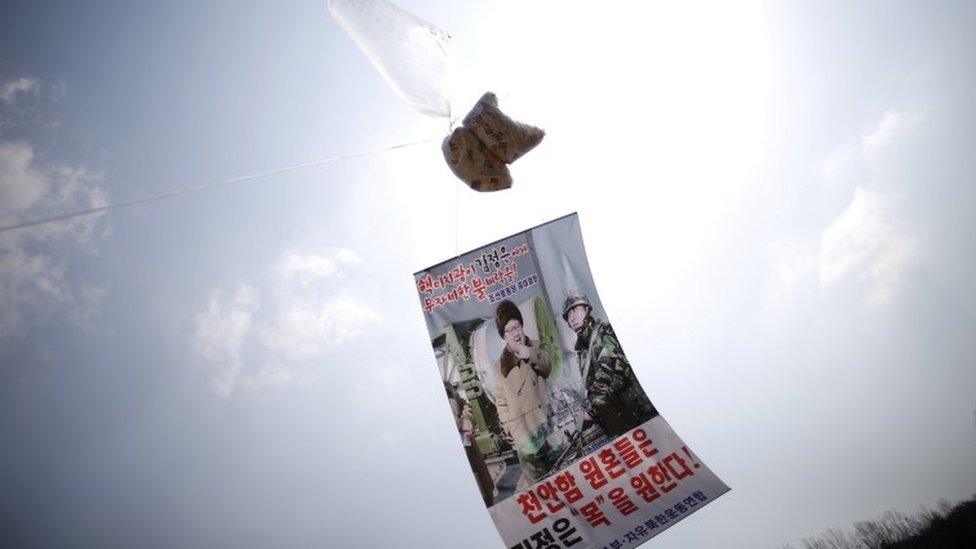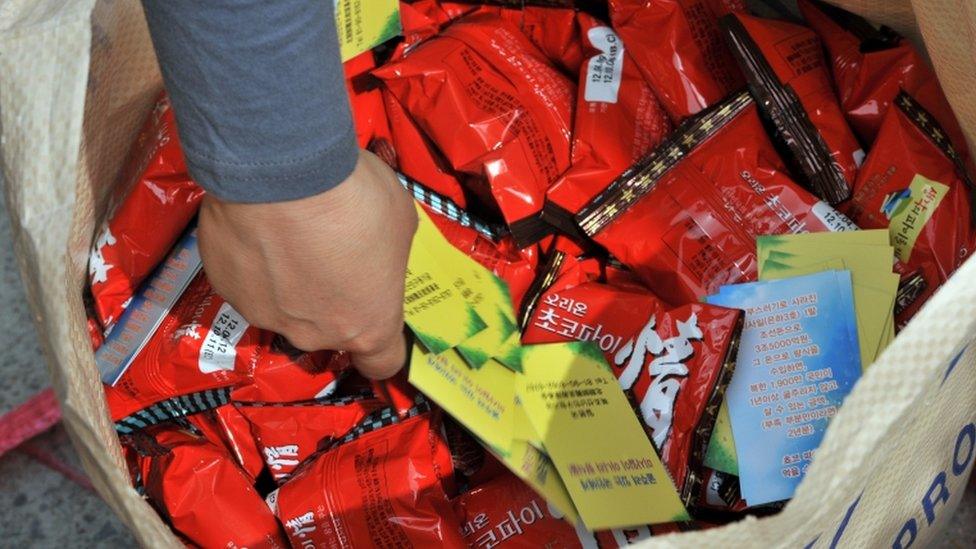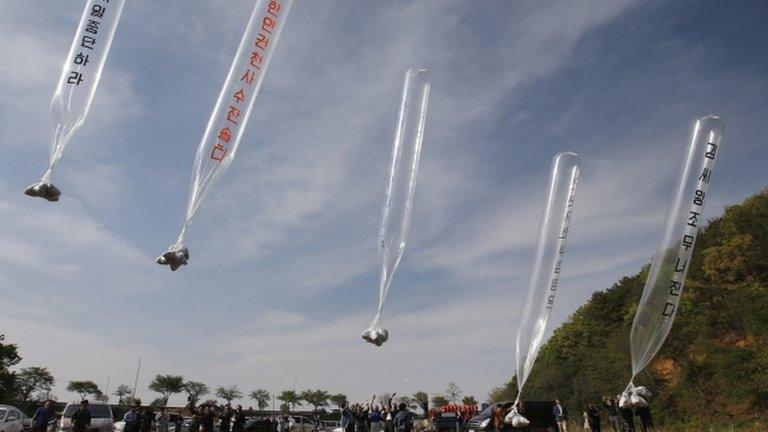South Korea balloons: Seoul to ban people sending cross-border messages
- Published
South Korean activists launch propaganda balloons over border (2014 video)
South Korea is to ban the sending of anti-Pyongyang leaflets into North Korea, ending a propaganda exercise that has taken place for decades.
Activists would tie the leaflets to balloons and float them over the border for North Korean residents to find.
The new law, which takes effect in three months, also stops campaigners sending money, goods and USB drives containing news and information.
Rights activists have said the law is a violation of freedom of speech.
A bill was introduced in June after Kim Yo-jong - sister of North Korean leader Kim Jong-un - said balloon-senders were "human scum".
Breaking the law passed by the South's parliament will be punishable by up to three years in prison or a fine of 30 million won (£20,700; $27,500).
Why was the bill introduced?
In June, Kim Yo-jong - who holds a powerful position in the North Korean government - issued a long statement, blaming "defectors from the North" for sending leaflets attached to balloons.
"I wonder if the world knows what kind of riff-raff those foolish defectors are," said the statement, translated by KCNA Watch.
The North has also sent its own leaflets on helium balloons across the border in the past.
The South Korean government then said it was planning legislation against the balloons, which they called "tension-causing".

Rights activists have said the law is a violation of freedom of speech
Many of the balloons failed to make it over the border and ended up causing pollution inside South Korea, while also putting a burden upon local people to dispose of them, a spokesperson for the Ministry of Unification said at the time.
In 2014 North Korean soldiers attempted to shoot the balloons down - leading to an exchange of fire across the border.
Seoul has been trying to re-establish ties with Pyongyang after a year of very little contact.
What has the reaction been?
Rights groups have accused the South Korean government of pandering to the North.
Human Rights Watch called the ban a "misguided strategy" to win Kim Jong-un's favour by targeting its own citizens.

A bag containing chocolate before being sent from South to North Korea in 2012
Tae Yong-ho, an opposition lawmaker and former North Korean diplomat, said the law would assist North Korea in "enslaving" its people.
Chris Smith, a US Republican congressman co-chairing a bipartisan human rights commission, said the legislation was "acquiescence to Communist North".
But the Unification Ministry said the law was a "minimal effort to protect the lives and safety of residents in border regions".
- Published4 June 2020
